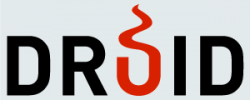DRUID17, New York, June 13 – 15, 2017
How National Science Foundation Rotators Build Up the Ability of their Colleagues to Attract Research Resources
Christos Kolympiris
School of Management, University of Bath

Sebastian Hoenen
Management Studies, Wageningen University
Abstract: We study whether scientists who move out of academia temporarily, affect their colleagues’ ability to attract research resources. To do so we are the first to exploit the National Science Foundation (NSF) rotation program under which NSF employs academics, called rotators, on loan from their university, to lead its peer review. We ask whether rotators upon return to their academic institution cause their colleagues to increase their NSF funding acquisition. Using difference-in-difference estimations we reveal causal evidence that rotator’s colleagues without NSF funding ex-ante raise approximately $120,000 more than similar scientists in similar academic units, identified via Coarsened Exact Matching, who do not have a rotator colleague ex-post. This effect strengthens with rotator’s helpfulness and tenure at their institution. Numerous tests and interviews ruling out competing explanations suggest that knowledge transfer from the rotator including hints on topics NSF is keen on funding is the causal mechanism driving the results.

